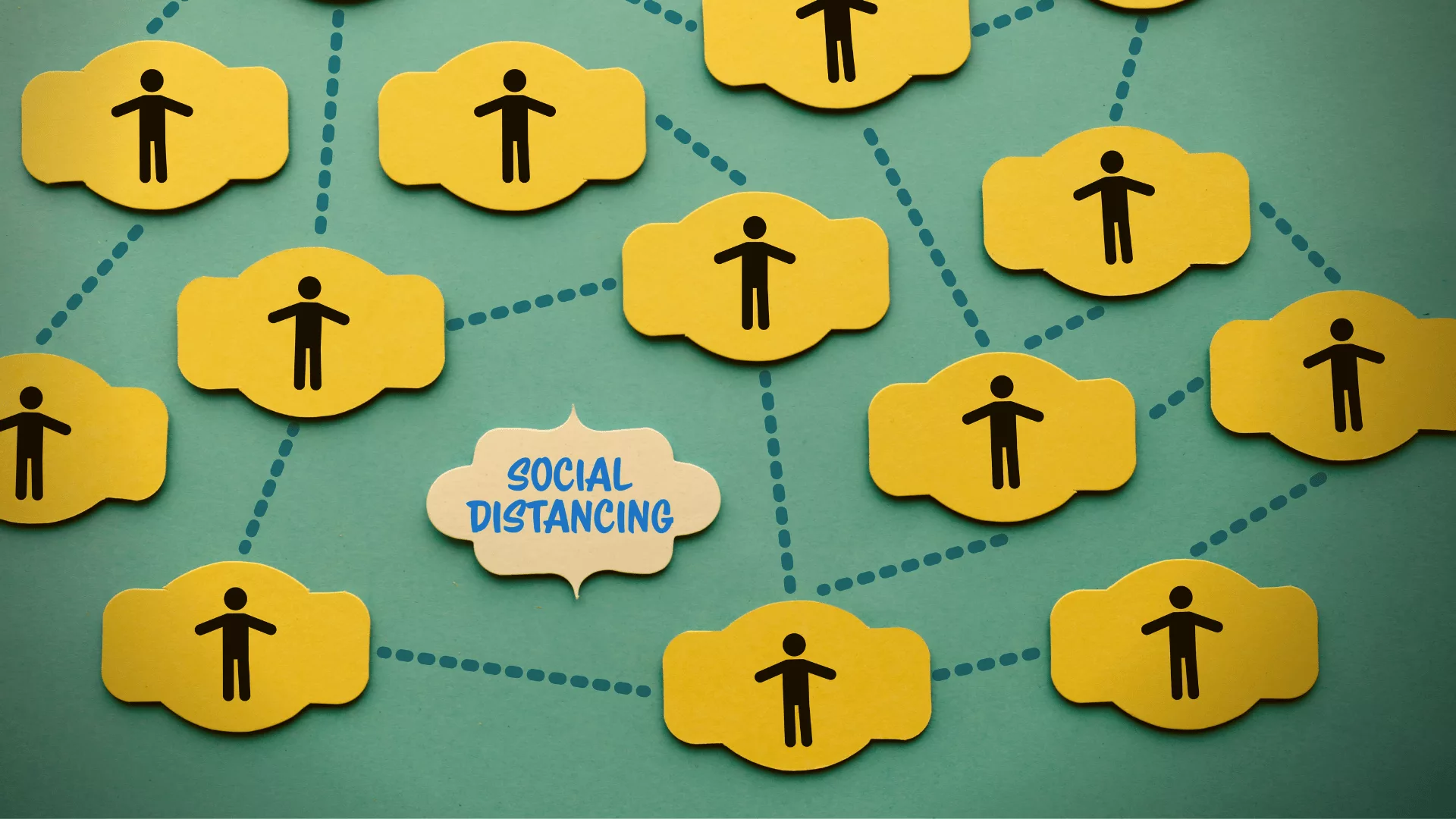leadership
Dealing with the Curse of Perfectionism - and the Cure of Good Enough
The Curse of Perfectionism - and the cure of Good Enough
by Karen Amos
In my line of work, I have the privilege of meeting many people from all walks of life, albeit virtually nowadays. In doing so, it’s easy to pick up themes. Here’s one – January was tough.
The end of January is always a difficult time. It’s towards the end of the winter when we get the fatigue. When the long nights go on forever and we’re starved of sunlight and to compound it all, we’ve been locked in.
I work with schools and I know many parents of school-aged children. There have been numerous fractious exchanges between these two groups, which is almost inevitable when you consider the pressure everyone is under. And that's the key to it – it’s about the pressure. When we feel under pressure, we naturally go into self-preservation mode.
There has been huge pressure on teachers, who are not only dealing with uncertainty, but also trying to juggle online and face-to-face learning with concerns and follow-ups of children in their care, not to mention the politics, with a large and small 'P'.
In the meantime, parents have suddenly had the pressure of trying to hold down jobs whilst working from home and managing the almost impossible expectations of home-schooling.
I’ve posted about the philosophy of Stoicism since the new year. Here’s the thing – everyone just wants to do a good job. Sometimes though, we have to accept that ‘least worst’ is the best on offer. In doing so, we have to simply accept what is. That’s not defeatist by any stretch - it’s pragmatic and allows you to give yourself permission to just do what’s ‘Good Enough’. By good enough, I mean good enough in the context of the circumstances in which you find yourself.
The concept of ‘Good Enough’ has its roots in child development and parenting and latterly in social work, then also in software and systems design. But there’s a message for all of us in there…
‘Perfection is the enemy of action.’
Magnifying shortcomings and failures, just leads to disappointment and grows, resulting in guilt, anger and blaming. ‘This isn’t right, ergo someone must be at fault.’
Whilst being Good Enough Parents to our children, how about being Good Enough Parents to ourselves? Let’s set out reasonable expectations in advance and not expect more of ourselves than we would of others – or indeed, not expecting more of others than is reasonable.
Here are some helpful coaching questions to take a stoical, 'Good Enough' approach to life:
- What could I achieve today in order to think, 'Yes, that was good enough'?
- What would I tell my friend was good enough if they were in my position?
- What are the consequences if I do this to a good enough, rather than perfect standard?
- What will I gain?
- What will this cost me?
- What's the most important thing to achieve today?
Above all, Good Enough is about being kind - to yourself and others. After all, there are always plenty of challenges in life, so why make things any harder?
If you'd like support for you or your team to reduce stress and build resilience and effectiveness at work, check out our online Positive and Productive training programme for BUSINESS & VCSE orgs or SCHOOLS.
For an informal, no-obligation chat call us on 07714 855757, or email [email protected]. Or visit our NEW training pages HERE
 Karen Amos is an executive coach and founder of BrightBird Coaching & Training. She supports under-pressure business owners and managers to get the best out of themselves and their teams. She brings a practical, down-to-earth approach to improving working lives through better leadership, communication and working relationships.
Karen Amos is an executive coach and founder of BrightBird Coaching & Training. She supports under-pressure business owners and managers to get the best out of themselves and their teams. She brings a practical, down-to-earth approach to improving working lives through better leadership, communication and working relationships.
What to do when positive thinking isn't enough...
What to do when positive thinking isn't enough...
By Karen Amos
I can’t think of anyone who’s not been challenged in one way or another by the pandemic over this last 9 months. Whilst this has certainly tested many of us in the extreme, this is just one of many challenges life will send our way.
As a result, I’ve been spending a lot of time researching the frequently misunderstood philosophy of Stoicism, which is often misinterpreted as the British ‘stiff upper-lip’, ‘putting up with misfortune’ view of life. In reality, stoicism teaches us a very practical lesson – that in life, circumstances will continue to challenge us, but it is within our gift to decide how we will respond to them.
Here’s a quote by Epicticus:
‘When something happens, the only thing in your power is your attitude towards it. It is not the things that disturb us, but our interpretation of their significance. Things and people are not what we wish them to be nor are they what they seem to be. They are what they are.’
Often coaching is seen as a bit ‘Pollyanna – all in the garden is rosy’, which is why many people (with some justification) cite ‘toxic positivity’ at the relentless ‘just think positive’ messages. In fact coaching at it’s best is nothing of the sort. Tony Robbins has a great approach to this. I paraphrase:
Just relying on a positive thinking alone is like going into your garden and chanting ‘there are no weeds, there are no weeds’, when your garden’s clearly full of weeds. You need to get in there and pull them out!
We need to accept that life is frequently challenging and bad stuff happens. Rather than passively accepting that, drowning in self-misery, or railing against the universe, we need to roll up our sleeves and deal with it. We need to take action that will serve us well.
Here are a few coaching questions to get you started:
- What’s my main challenge here?
- Is there a small, practical action I can take that will serve me better right now?
- What are the costs and benefits of my current approach/attitude? What can I do differently that will move me forward and have a positive effect?
Remember, we’re all human and it’s important to acknowledge our feelings. If something bad happens it’s perfectly natural and healthy to feel down, upset or angry. The problem is that simply dwelling on these feelings and responses will not serve us well, or help our situation. It’s therefore in your gift and best interests to start to coach yourself to a better way forward that will.
If you'd like support for you or your team to reduce stress and build resilience and effectiveness at work, get in touch for an informal, no-obligation chat. Watch out for our NEW Positive & Productive Programme - launching January 2021! Contact us for more details or click HERE.
We offer one-to-one and team coaching and in-house training programmes.
Call us on 07714 855757, or email [email protected]. Or visit our NEW training pages HERE
 Karen Amos is an executive coach and founder of BrightBird Coaching & Training. She supports under-pressure business owners and managers to get the best out of themselves and their teams. She brings a practical, down-to-earth approach to improving working lives through better leadership, communication and working relationships.
Karen Amos is an executive coach and founder of BrightBird Coaching & Training. She supports under-pressure business owners and managers to get the best out of themselves and their teams. She brings a practical, down-to-earth approach to improving working lives through better leadership, communication and working relationships.
Want to Avoid Catastrophe? Mind Your Language!
Want to Avoid Catastrophe? Mind Your Language!
By Karen Amos
Well, 2020 truly is the gift that keeps on giving! Have you ever wondered though, how some people seem to sail through things easier than others? The reason isn’t usually due to their circumstances, but all about mindset – that is to say, the way they think about or perceive things.
The great thing about our mindset is that we can change it and by doing so, we can change our perception and in turn our experience in life.
Just a quick cautionary note here. Some people are experiencing truly catastrophic events right now; they are suffering the loss of loved ones and failure of businesses they have invested their life savings in. This article isn’t about negating these events – we need to be allowed to freely express our emotions at this time – but rather that our day-to-day language needs to be proportionate and also ‘helpful’ to us.
Mind your language...
The language we habitually use can significantly impact our mindset – negatively or positively. This has never been so crucial as at a time like the one we’re living through. There’s a phrase to describe this as coined by Albert Ellis – ‘AWFULIZING’ – where we perceive or describe a situation as being much worse than it actually is. ¹ I had such an experience in a recent coaching session with a client.
Like many people, my client is working under huge pressure due to the covid situation. They are supporting a team who are dealing with negative changes on a daily, if not hourly basis. What jumped out at me was the language she and the team were using. ‘I had a meltdown,’ and ‘It’s a nightmare,’ were just a couple of examples.
Let’s just examine this for a moment. ‘Meltdown’. ‘Nightmare’. Really? When we started to unpick this, it was obvious that such extreme language was actually adding to the stress and anxiety experienced by both the person saying the words and those hearing it.
Other commonly used catastrophic expressions include:
- I’m overwhelmed…
- It was devastating…
- The situation is terrifying…
- I’m exhausted…
Quite simply, our words generate an emotional response, so catastrophic language leads to heightened arousal levels whereas more ‘neutral’ or ‘positive’ language has the opposite effect.
So what to do?
If you find yourself or others around you using awfulizing, catastrophic, or just plain exaggerated language, there are some useful coaching questions that can help:
- Is this really a ‘disaster’ [insert chosen catastrophic phrase as desired!]?
- Is there a more accurate way to describe this?
- What’s really going on here?
- What’s the evidence telling me?
- What did I actually see, hear, experience?
- Are there any positives here? (There are usually some things that we can take from a situation, however awful – e.g. that you were really challenged, but managed to contain the situation.)
Recognise and Replace...
Using the ‘recognise and replace’ process to build new, more helpful habits and language is an easy and effective way to reduce your stress. You ‘recognise’ that you (or others) have used overly catastrophic or dramatic language, then ‘replace’ this with something more representative of what’s really happened. By doing so, you increase personal resilience and empowerment and decrease stress levels – both for yourself and others.
An example might be:
“This situation is a complete nightmare!”
Becomes…
“Things are really challenging us from lots of angles at the moment. Our resources are stretched and we need to make some tough decisions.”
The latter example leaves people feeling more in control and empowered within their situation. Try it!
- https://en.wikipedia.org/wiki/Rational_emotive_behavior_therapy
If you'd like support for you or your team to reduce stress and build resilience and effectiveness at work, get in touch for an informal, no-obligation chat.
We offer one-to-one and team coaching and in-house training programmes.
Call us on 07714 855757, or email [email protected]. Or visit our NEW training pages HERE
 Karen Amos is an executive coach and founder of BrightBird Coaching & Training. She supports under-pressure business owners and managers to get the best out of themselves and their teams. She brings a practical, down-to-earth approach to improving working lives through better leadership, communication and working relationships.
Karen Amos is an executive coach and founder of BrightBird Coaching & Training. She supports under-pressure business owners and managers to get the best out of themselves and their teams. She brings a practical, down-to-earth approach to improving working lives through better leadership, communication and working relationships.
Want to achieve more? Start at the end…
Want to achieve more? Start at the end...
By Karen Amos
September. Putting aside the nagging feeling I’ve blinked and missed the last 6 months, I’m starting September with a new energy. There’s something about this time of year that smells of new starts and exciting possibilities, no doubt from early conditioning of starting back at school for a new term, with new shoes and fresh unwritten exercise books...
Whatever the reason, it’s a great time of year to utilise all that new-found motivation. The problem is, it’s so easy to lose it again amongst all the ‘chores’ that need doing – both at work and personally. I found myself in such a place this week, feeling overwhelmed with the amount of tasks, appointments and activities in front of me. The issue with overwhelm is that it can stop you in your tracks, or at best leave you highly ineffectual, casting around aimlessly, or immobilised by indecision.
Building Better Habits...
Then I remembered good old Stephen Covey – You know, the ‘7 Habits’ guy! As a coach, one of my favourite habits is ‘Begin with the End in Mind’. The premise is that we first need to create a mental blueprint of what we want to achieve before we physically take action. ¹
Coaching follows the same principle. If you don’t know your destination, how will you know the right actions to take? This is why so many people are unproductive in their work, as they focus on tasks and activity, rather than outcomes. That’s the reason John Whitmore started the coaching GROW Model with ‘G’ for ‘Goal’. We need to first work out where we want to go, then work out how we’re going to do it.²
Start Your Day As You Mean To Go On...
One great habit to get into, is to spend the first 10-15 minutes of your day, planning. That means planning out your day, and also how this fits to your week and the medium to longer term. It’s easy to say you can’t afford the time, but I’d argue that you can't afford not to.
To start the day with no clear plan, means you’re trusting to luck that you’re working on the right things, with no clear measure of whether you’ve been successful or not. You'll inevitably end up bowing to external pressures and losing track. Essentially, you need to train yourself to consistently think strategically about all aspects of your work and business. Strategy shouldn't be something we visit now and again when we've time - it should be the road map with live and work by.
Here are some helpful coaching questions to get you started:
- What do I actually need to achieve here?
- What’s my outcome for today?
- How will I know when I have achieved this?
- Is this the most important thing I should be working on?
- What’s a reasonable timescale to achieve this?
- Who can help me with this?
- What other resources will I need?
- What are my first steps?
So remember, if you really want to make an impact – begin at the end!
- Covey S.R., (2020). The 7 Habits of Highly Effective People – Powerful Lessons in Personal Change. Simon & Schuster. UK
- Whitmore, J,.(2007). Coaching For Performance - GROWing People, Performance & Purpose. 3rd Edition. Nicholas Brealey. London.
If you'd like to create more space and focus in your working life, book in for a FREE Discovery Coaching session. Click HERE to find out more.
For an informal, no-obligation chat about how we can help you, call us on 07714 855757, or email [email protected]. Or visit our NEW training pages HERE
 Karen Amos is an executive coach and founder of BrightBird Coaching & Training. She supports under-pressure business owners and managers to get the best out of themselves and their teams. She brings a practical, down-to-earth approach to improving working lives through better leadership, communication and working relationships.
Karen Amos is an executive coach and founder of BrightBird Coaching & Training. She supports under-pressure business owners and managers to get the best out of themselves and their teams. She brings a practical, down-to-earth approach to improving working lives through better leadership, communication and working relationships.
Bringing your team back into the fold? Try Huddling!
Bringing your team back into the fold? Try Huddling!
By Karen Amos
Through all the uncertainty, there’s a prevailing need to get teams back on track. Whether your teams are working remotely, back in-house or a mixture of the two – no matter, you will need to take considered action to address the current and future challenges. Teams rarely perform well by default.
I’ve written extensively about the benefits of Team Coaching as a powerful, effective tool to address team issues and performance. (Check out my blog Team Coaching - What is it and how can it help?) Whilst this can bring excellent organisational outcomes, it works best over a course of several weeks/months to bring long-lasting change and progress.
So what about Huddles?
Huddles (similar to Scrums in Agile working) are very short, frequent team meetings. The purpose and format can be as flexible as you need it to be, which makes it a perfect tool to bring together geographically dispersed, or new/re-forming teams.
In a previous management role, I was responsible for a diverse and predominantly part-time workforce. The consequence was that some people had no idea what was going on in the organisation on a day-to-day basis, how other projects were progressing and what the implications were on their own work. We set up daily, very time-limited huddles to update everyone, with the intention that people would attend on their working days. It was paperwork-light and people/solution-focused.
Here's our quick guide to Huddling…
What’s the purpose?
'Whatever you need', is the short answer. The general purpose is to have a relatively structured check-in/update for the team on a regular basis. These shouldn’t be confused with team meetings. It’s important to have a clear purpose for your Huddle, or it will just become a ‘talking shop’ or ‘moan-fest’.
Examples could be to:
- Have a regular general progress update
- Share successes
- Identify bumps in the road and seek solutions
- Share project critical updates
What are the benefits of Huddling?
Many managers are reporting that they are struggling to find the right amount of contact with their teams. During lockdown, they had contact several times a week with their staff, checking on wellbeing as much as workload and progress. Over time however, many staff are saying they’re fine and don’t need so much contact. This runs the risk of some members becoming isolated.
Here are a few ways Huddles can help:
- Help part-timers and staff working from home to be updated and included in what’s going on
- Replace the impromptu 'watercooler' conversations that are missing with homeworking
- Allow sharing of more subjective information and updates within the team that may not normally be included in more formal communications
- Generate team support and understanding – it’s easier to be understanding if you’re dealing with people face-to-face on a regular basis, even if that’s on video calls
- Up to date progress reports help shape more responsive actions and build motivation and accountability
- Opportunity to share wins as well as challenges
Are there any pitfalls and challenges to Huddles?
Absolutely! As mentioned above, Huddles should not turn into just another talking shop or protracted team meeting. Good facilitation and commitment is needed to ensure consistent attendance, time management and that everyone sticks to the agreed purposes.
In the case of large teams, you may choose to split these to keep the Huddles short. The split could be per project, working days, or just with a diverse mix of staff. Whatever works for you.
We all know that person who hogs the limelight right? If you have someone who regularly takes over, I’d suggest this is objective evidence for a manager to give some constructive feedback in their next one-to-one. This allows opportunity for some coaching on improving communication skills and relationships with the wider team.
There’s also a need for continued commitment from all team members. There are likely to be some people who claim they don’t see the point, but again, this is an opportunity to build a more inclusive and supportive organisational culture. I’d suggest a coaching conversation about what they do need, but also how they can support other people in their team.
Hopefully this has given you a positive tool to bring your staff teams back into the fold. Click HERE if you’d like to find out more about Huddles and some practical ways to implement them.
For an informal, no-obligation chat about how we can help you, call us on 07714 855757, or email [email protected].
 Karen Amos is an executive coach and founder of BrightBird Coaching & Training. She supports business owners and managers who are feeling the pressure, to get the best out of themselves and their teams. She brings a practical, down-to-earth approach to improving working lives through better leadership, communication and working relationships.
Karen Amos is an executive coach and founder of BrightBird Coaching & Training. She supports business owners and managers who are feeling the pressure, to get the best out of themselves and their teams. She brings a practical, down-to-earth approach to improving working lives through better leadership, communication and working relationships.
Let's be honest about it... Do you have the courage to say you don't know?
Let's be honest about it... Do you have the courage to say you don't know?
by Karen Amos
There has, rightly I'd say, been criticism of the government and the like, regarding a lack of information. This leads to statements like, 'treating us like children' and people translating the law according to their own preferences.
The problem is, there's probably a lack of credible information to give right now, be this be at a government level, or within a school or businesses. We're living in a high state of uncertainty, which brings anxiety. This naturally leads people to think there's something negative or sinister going on and off we all go...
Nature abhors a vacuum and in my experience, this applies to information too. Create a space and someone will fill it. It doesn't matter if what's filling the space is true, credible, or even helpful - it will get filled. Just check out the tabloids if you've any doubt!
This is an area where Authentic Leadership provides the way forward. Behaviours of Authentic Leaders include honesty and openness. What Bill George calls Relational Transparency – Sharing of thoughts and beliefs with honesty and genuineness – no games or hidden agendas.
This means if you don't know the answer to something, you say so.
Another of the behaviours is the ability to solicit or consider other viewpoints - enlisting the help and resources of those around you to help you find the right path or solution. It's hard to admit we don't know, particularly when we're working in a position of authority, but done well, this will build trust and strengthen teams, not take it away.
If you would like to find out how BrightBird can help you build leadership performance and support your teams to remain positive and productive, get in touch for a no-obligation chat. We offer online 1-to-1 coaching support from senior leadership to front-line staff, group and peer coaching and training/webinars.
Tel: 07714 855757 or email: [email protected]
Check out our latest training offers at: https://brightbird.wordifysites.com/services/training-courses/
 Karen Amos is an executive coach and founder of BrightBird Coaching & Training. She supports business owners and managers to get the best out of themselves and their teams. She brings a practical, down-to-earth approach to improving working lives through better leadership, communication and working relationships.
Karen Amos is an executive coach and founder of BrightBird Coaching & Training. She supports business owners and managers to get the best out of themselves and their teams. She brings a practical, down-to-earth approach to improving working lives through better leadership, communication and working relationships.
Do you trust your team...? If not, why not?
Do you trust your team...? If not, why not?
By Karen Amos
I reflected in a previous post how the current Covid-19 situation seems to have brought out the best and worst in people and never more so than in the behaviour of leaders, managers and businesses/organisations. We’ve had the whole spectrum, from unkind, exploitative and selfish behaviour at one extreme, to altruistic, brave and compassionate behaviour at the other.
In the last few weeks, I’ve seen plenty of examples of both, often in the same sectors. For example, schools who send tons of homework out, expecting staff to provide evidence of planning and marking and sending ‘strongly worded’ communications to staff, parents and pupils alike when deadlines aren’t met. On the other hand, there are the school leaders who have prioritised the welfare of the children and their families over ‘outputs’, leading from the front and doing whatever it takes to ensure people in their communities are OK during this time.
There are also the organisations and businesses who insist on checking up on their staff, expecting detailed daily and weekly reporting, just because people are working from home. Those who expect detailed timesheets to account for people’s working time. Alternatively, there are the leaders who have the conversation with their teams that say, ‘How are things for you right now? What do you need from us to make this work for you?’ – and actually listen to and act on the answers.
In essence, this comes down to a matter of trust. I often ask a question of business owners and managers – ‘Why do you continue to employ someone that you don’t trust to do a good job?’ My view is that we should do one of two things:
1. Create the environment your employees need to thrive and do what they do well.
2. Or if there’s a performance/attitude issue, get some advice and go down the capability/disciplinary route – and/or seriously think about evaluating how robust your recruitment systems are.
If you feel you can't trust your teams, then it's time for you as a leader to take action. Ask yourself, 'What's going on here?', 'What's the root cause of this problem?' and be prepared to take action - remembering that you may actually be the problem. Time to work out how you can be the boss you'd like to have.
If you would like to find out how BrightBird can help you build leadership performance and support your teams to remain positive and productive, get in touch for a no-obligation chat. We offer online 1-to-1 coaching support from senior leadership to front-line staff, group and peer coaching and training/webinars.
Tel: 07714 855757 or email: [email protected]
 Karen Amos is an executive coach and founder of BrightBird Coaching & Training. She supports business owners and managers to get the best out of themselves and their teams. She brings a down-to-earth approach to improving working lives through better leadership, communication and working relationships.
Karen Amos is an executive coach and founder of BrightBird Coaching & Training. She supports business owners and managers to get the best out of themselves and their teams. She brings a down-to-earth approach to improving working lives through better leadership, communication and working relationships.
Herding Cats – Or the Art of Building Responsibility and Accountability
Herding Cats – Or the Art of Building Responsibility and Accountability
By Karen Amos
There’s been a theme for many of my clients recently – that of how to build effective responsibility and accountability in their teams and organisations.
It’s easy to point the finger of blame when things go wrong, but we need to be clear on our own levels of responsibility and accountability before we expect others to do the same. It’s interesting how many managers complain about feckless or inconsiderate behaviour within teams, yet have never clearly defined their own, or their team’s expectations regarding the alternative. Or often, and possibly worse, have subconsciously imposed different standards of behaviour for themselves versus that of others. Quick check: If you find yourself saying, ‘Yes, but….’ when questioned about this, you can be sure you’re part of the problem!
Building a coaching culture within organisations is a highly effective way to increase personal and collective responsibility and increase ownership and clarity around accountability. It’s often (incorrectly) seen as a ‘soft’ approach to leadership and management, to be side-lined if performance management or the ‘hard word’ is needed.
I believe this completely misses the point of what coaching is.
A coaching approach, used properly, will be the most challenging, yet effective solution to team performance for managers and staff alike. It works equally well through both informal and formal management interventions – indeed it should run through all your communications with people like the proverbial stick of rock.
 The reason for this effectiveness is the emphasis on doing ‘with’ not ‘to’ your staff. Whilst it’s easy to lecture and give the ‘hard word’, this all too frequently leads to the other person feeling victimised and powerless, which quickly leads to teams taking no responsibility for solving the issue. Let's face it, it's much easier to say your boss is a right so-and-so, rather than face up to the fact you didn't do your job right! Coaching on the other hand, requires all parties to contribute to solving the issue. This puts ownership right where it belongs.
The reason for this effectiveness is the emphasis on doing ‘with’ not ‘to’ your staff. Whilst it’s easy to lecture and give the ‘hard word’, this all too frequently leads to the other person feeling victimised and powerless, which quickly leads to teams taking no responsibility for solving the issue. Let's face it, it's much easier to say your boss is a right so-and-so, rather than face up to the fact you didn't do your job right! Coaching on the other hand, requires all parties to contribute to solving the issue. This puts ownership right where it belongs.
An example of this was seen through an executive coaching client of mine (names and details removed to preserve confidentiality). He was despairing of a long-standing member of his team who wasn’t performing, missing targets and despite several ‘discussions’ was on the verge of formal performance management procedures. Upon examination, my client when asked, couldn’t tell me the reason for the person’s performance issue, so this became the first step in his new approach, which included using coaching skills to elicit from the member of staff what they thought the solution could be.
It’s important to remember that coaching doesn’t ignore standards, organisational strategies, goals and targets. Rather it works within these to come up with alternative solutions to enable people to perform at their best.
The outcome of the situation with my client was that he did commence formal capability proceedings, but was actually thanked for his support by the member of staff, who had a clear action plan they felt they could own and implement. Importantly, they were now taking full responsibility for their own actions, but were empowered by feeling they were in control of this.
Here are a few coaching questions to help you and your team explore and build responsibility and accountability:
- What’s my responsibility here and what am I accountable for and to whom?
- Does my team/manager know and agree with this?
- Are my team clear about who is responsible and accountable for each piece of work they do?
- Are people as involved as they can be regarding agreeing responsibilities? Do we instruct, or consult regarding this?
- Do we have agreed check in points to review how this is going?
If you would like to find out more about how BrightBird Coaching and training can help you and your team to develop more accountability and responsibility, please contact us for a no-obligation chat. We offer short workshops, to multi-day training and 1:1 and team coaching.
Check out our latest Effective People Management Programme HERE.
Tel: 07714 855757 or email: [email protected]
 Karen Amos is an executive coach and founder of BrightBird Coaching & Training. She supports business owners and managers to get the best out of themselves and their teams. She brings a down-to-earth approach to improving working lives through better leadership, communication and working relationships.
Karen Amos is an executive coach and founder of BrightBird Coaching & Training. She supports business owners and managers to get the best out of themselves and their teams. She brings a down-to-earth approach to improving working lives through better leadership, communication and working relationships.
Never knowingly letting facts stand in the way of a good assumption….
Never knowingly letting facts stand in the way of a good assumption….
By Karen Amos
I’ve had a couple of similar experiences this week with clients and associates. They’ve reported situations where they, or people working for or with them, were becoming upset and anxious about certain issues.
There was one core theme – everyone was guessing how everyone else felt and what they thought about the situation. It’s amazing – and as a coach, I come across this all the time – people behave like they have some sort of innate psychic ability. Except that if they did (spoiler alert: they don’t!), they really shouldn’t go splashing out on too many lottery tickets as they don’t seem to be very good at it!
One of the huge benefits to having a coach is that you have access to someone skilled in ‘reality checking’. As is often the case, this sounds simple, but it’s really not. Think about it. Any misunderstanding around a situation is usually because the parties involved aren’t on the same wavelength – they don’t share the same reality as the other person. There are innumerable reasons for this, but they include:
- Not recognising our own feelings
- Not recognising the other person’s feelings
- Not having access to all the information
- Working to different timescales
…and the list goes on.
Obviously, this lack of information leaves gaps – and we don’t like gaps, as they make us feel insecure – so we try to fill them. The way we do this is usually through making assumptions. Of course it’s Janet’s fault that you feel nervous about attending the meeting she’s chairing, because she clearly doesn’t care about your feelings…
 A coach is able to bring a fresh perspective through the use of questions, that help clarify, not what’s going on, but what’s REALLY going on. Sometimes this can be tough, as let’s face it, it’s much easier to blame Janet for chairing rotten meetings that make you nervous, rather than admit the reality that you never seem to have the time to properly prepare for them. Knowing what’s REALLY going on, means you can then start to find a solution to the issue. Maybe you need to stop assuming Janet knows how you feel and ask for some support. Maybe you need to re-prioritise your workload to allow time to prep for meetings so you’ve opportunity to shine and show off your achievements…
A coach is able to bring a fresh perspective through the use of questions, that help clarify, not what’s going on, but what’s REALLY going on. Sometimes this can be tough, as let’s face it, it’s much easier to blame Janet for chairing rotten meetings that make you nervous, rather than admit the reality that you never seem to have the time to properly prepare for them. Knowing what’s REALLY going on, means you can then start to find a solution to the issue. Maybe you need to stop assuming Janet knows how you feel and ask for some support. Maybe you need to re-prioritise your workload to allow time to prep for meetings so you’ve opportunity to shine and show off your achievements…
Here are a few useful coaching questions when you find yourself in a difficult situation:
- What’s going on here?
- What’s REALLY going on here?
- What’s the root cause of my problem – is it something I can control?
- Does the other person know I’m experiencing this problem?
- What do they think about this?
- What’s the reason for their behaviour?
And most important of all…
- What’s my evidence to prove this?
Once you’ve started to make sense of your reality, you can then take positive steps to improve your communication without the hang-ups that often hold us back - and perhaps even pack away that crystal ball...
If you’d like to find out more about how coaching can help you, contact Karen Amos at BrightBird Coaching and Training to book your free discovery session. Karen will help you to explore the issues and challenges you’re facing and how you can overcome these.
Karen Amos is an executive coach and founder of BrightBird Coaching & Training. She supports business owners and managers to get the best out of themselves and their teams. She brings a down-to-earth approach to improving working lives through better leadership, communication and working relationships.
Contact: [email protected] / 07714 855757
Dare you discuss your work performance?
By Karen Amos
I've just listened to an excellent episode of 'Ramblings' on Radio 4, where Clare Balding discussed mental health in business with an ex-CFO of a FTSE 250 company. He explained how he had experienced depression all his life, but felt he had to hide this in his workplace, as to disclose this would have been detrimental to his career.
He also discussed his lifelong tendency to focus on the negative - something I'm sure most of us have suffered from at some point. A classic example of this is ignoring the 99% positive feedback in your performance review and just hearing the 1% that could have been better.
Whilst there is a difference in the interventions needed to help people who are experiencing mental ill-health, there was a clear acknowledgement that there was a need to discuss areas of concern, performance and difficulties faced in the workplace. This is necessary to proactively prevent mental illness and promote wellbeing and build positive performance.
The assumption is that men find it more difficult to talk about themselves. My experience as an executive and professional development coach however, is that just as many women face the same fears and challenges. Surely, being able to do this should be seen as a strength, but many of my clients will not disclose to others that they are receiving coaching for fear of being perceived as 'weak' or 'under-performing'.
At the end of the programme Clare Balding asked the man if he would have any problem engaging with a sports coach to enhance his performance on the field. Without hesitation he said, 'No'. The implication is that this is seen as a positive move. The question then was, 'Why then are so many people reluctant to seek the same help in the workplace?' That support exists - it's also called a coach!
What's your stance on engaging someone to help your peformance at work? Are you prepared to speak candidly with someone, in confidence about your work performance, or does this feel 'unsafe' for you?
Karen Amos is an executive and professional development coach and training and the owner of BrightBird Coaching & Training. If you'd like to find out more about how Karen can help you and your team to be more positive and productive, get in touch for a no-obligation chat. Call on 07714 855757, or email [email protected]












